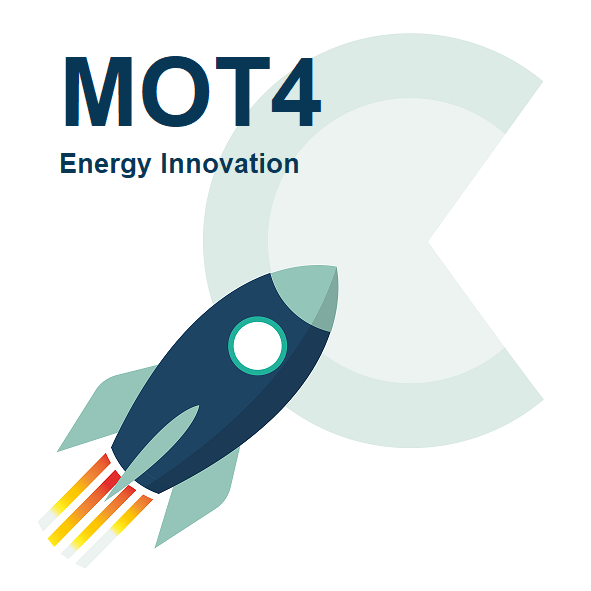Program Details MOT4

The demand for energy by the Flemish industry is enormous. The production of all this energy is a major driver of CO2 emissions and climate change. The fourth Moonshot research trajectory on energy innovation (MOT4) specifically supports research into sustainable energy solutions. In pursuing this research trajectory, the operational team of Catalisti closely cooperates with Flux50, the Flemish spearhead cluster for the smart energy industry.
Sustainable Energy Solutions
To successfully implement the breakthrough technologies from the other, more chemical related, Moonshot research trajectories (MOT1, 2 and 3), sustainable energy solutions in an economic cost-effective way, such as heat, hydrogen and electricity from renewable resources, like wind or solar power, are needed.
This not only requires breakthroughs in the field of energy production, but also, with regard to local energy, (grid) optimization between industrial processes and energy deployment, with a focus on costs and benefits of new value chains, sustainability, infrastructural needs and new opportunities for cross-border industrial sites. Finally, the development of new energy storage and transportation technologies can help limit the amount of energy that is lost in times of overproduction.
Challenges
The switch to carbon-smart energy solutions requires additional investments. Technologies based on sun and wind have an intermittent character. This means energy production depends on the ever-changing availability of wind and sunshine. The energy production of the future will therefore be less predictable. Periods in which there is no wind or sunshine could lead to what is called a Dunkelflaute: a period in which energy demand is larger than energy production. A Dunkelflaute could be countered by investing in even more innovative and sustainable energy solutions, combined with an optimal match between energy demand and energy production through artificial intelligence.
Goals and KPIs
The overall ambition, by 2040, is to develop technologies1 that enable to offer 80% of the total energy demand of the Flemish energy-intensive industry (chemical, petrochemical and steel sectors) as CO2 neutral/sustainable energy2 in an economic cost-effective way, which corresponds to a CO2 emission reduction in the order of 10 million ton CO2/year for the reference year 2018, with disruptive contributions in the following areas:
1. By 2030, develop at least 3 innovative technologies to TRL 6 to provide CO2 neutral/sustainable energy2 to meet the increasing energy demand (estimated at 70 TWh) of the industry, followed by at least 1 innovative technology every 5 years (TRL 6).
2. Develop at least 2 innovative technologies to TRL 6 for transport and storage of energy2 by 2030, with at least 1 innovative technology to TRL 6 every 5 years thereafter.
3. By 2030, the development of a novel generation of flexibility algorithms, 3 innovative processes “designed for flexibility” and a portfolio of cross-sectoral models to ensure that +20% of the industrial energy2 demand is provided by flexibility.
These goals have to be met within the following precondition: the economic profitability will be determined for technologies for implementation on an industrial scale within a global context, taking into account international energy prices for the chemical industry.
1 Hardware and software solutions (technologies, innovative algorithms for system integration and control)
2 Electricity, heat and other energy vectors.
